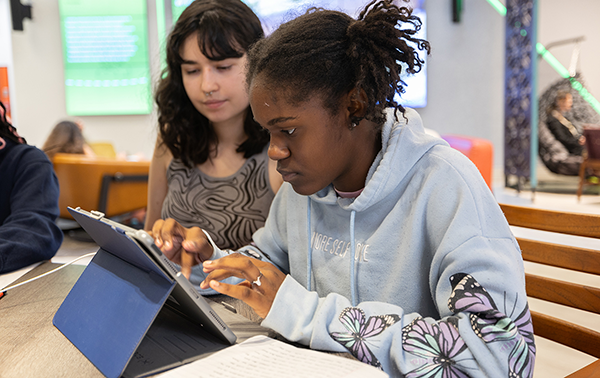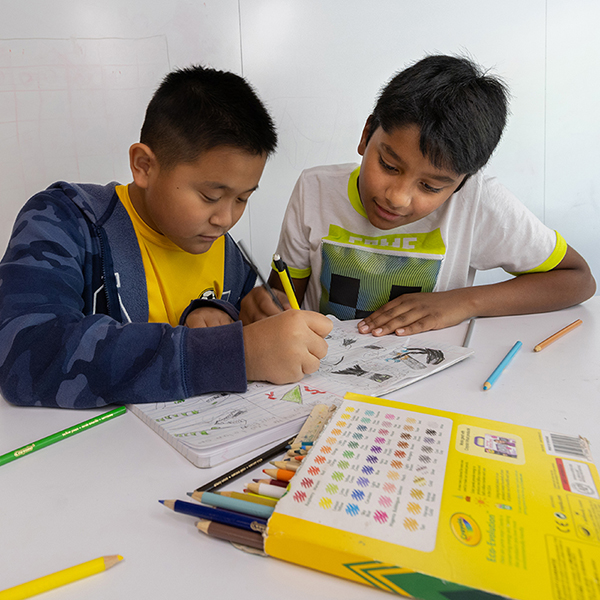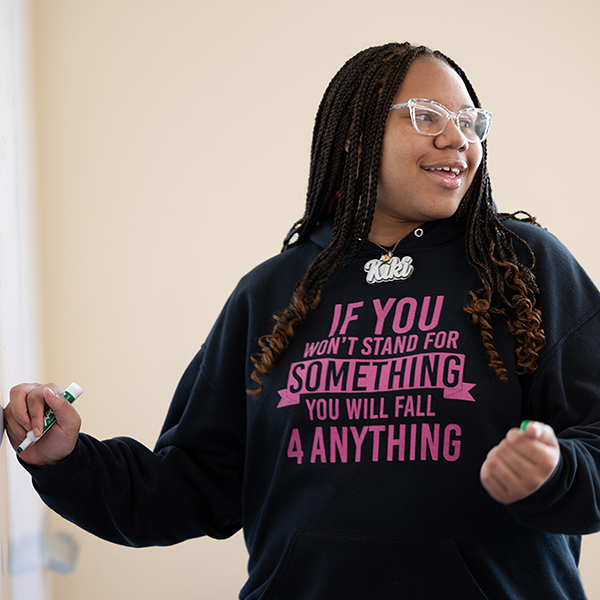
This article was written by Western Pennsylvania Writing Project interns Bridget Armon and Nicole Bufano.
“Hey writers!...Let’s write!” This was the call and response that greeted the campers every morning as they arrived at the Young Writers Institute (YWI), an eight-day summer program for students in grades 4-12.
From June 24 to July 3, 70 campers came to Posvar Hall at the University of Pittsburgh to work on creative writing projects ranging from superhero stories to nonfiction news articles, with the goal of building a published anthology of their work.
The YWI is an initiative of the Western Pennsylvania Writing Project, which is currently celebrating its 40th anniversary. First held in the summer of 1989, the YWI provides young students with a collaborative and immersive space to develop their writing and explore creatively without academic pressure. This year’s YWI was the first year after the pandemic that the camp was held in person.
“This year's Young Writers Institute was a thrilling return to the power of collaboration and creativity through writing,” said Khirsten Scott, director of the Western Pennsylvania Writing Project. “Each day at YWI, we saw the boundless imagination of our young writers and the tangible impact of innovative teaching.”

During YWI, young writers participated in a wide variety of activities, including writing marathons in the Nationality Rooms in the Cathedral of Learning, the Carnegie Museums of Art and Natural History, and other locations across Oakland. Young writers incorporated the art and architecture into their writing while immersed in each space. Students also participated in a Zine workshop with the Center for Creativity’s Text & conText Lab in Hillman Library, where they created and wrote zines from scratch. The lab provided instruction on how to turn a single piece of paper and piles of scrapbooking material into a miniature book that campers took home.
High school students dove deeper into the visual arts in tandem with their writing through the creation of their own graphic memoir panels. Drawing on inspiration from renowned authors such as Alison Bechdel and Lynda Barry, the young writers constructed vivid scenes of their own life narratives through a mix of images and dialogue.
“Working with the high schoolers and being a part of their writing processes was the most enriching part of my experience with the Young Writers Institute,” said Nicene McNeil, University of Pittsburgh English literature doctoral student and YWI mentor. “It was a great pleasure to witness their greatness.”
Middle school and upper elementary students practiced outside-of-the-box writing with black-out poetry activities. By selecting and crossing out words in book pages, campers transformed the words of another author into their own poems. Campers further engaged their creativity through writing-related games like the one-sentence-at-a-time story game, where students each contribute a sentence to create a story together, and story twister, where a Twister mat determines the settings, characters, and conflicts of the players’ stories.
 “It was very touching to see the students embracing their creativity and working hard to improve,” said recent University of Pittsburgh graduate Lily Tolchin, a current YWI mentor and a past YWI camper. “They made every activity their own in such a unique way.”
“It was very touching to see the students embracing their creativity and working hard to improve,” said recent University of Pittsburgh graduate Lily Tolchin, a current YWI mentor and a past YWI camper. “They made every activity their own in such a unique way.”
At the end of the week, all students gathered with their parents for a final showcase of their best work from camp. Complete with campers emceeing the event, students presented their writing and shared their final shoutouts, which are daily compliments given to their fellow campers.
“Shoutout to my friends who helped me feel welcomed, and comfortable to speak my mind,” said Maliyah Turner, a middle school student, before rattling off a list of the new friends that she had made amidst collaborative readings and peer review sessions. The showcase ended with heartfelt goodbyes from campers and promises to see each other next summer.
Learn More
The Young Writers Institute will return in the summer of 2025. For more information, visit our website or reach out to wpwp@pitt.edu.
